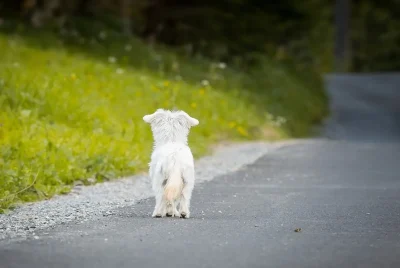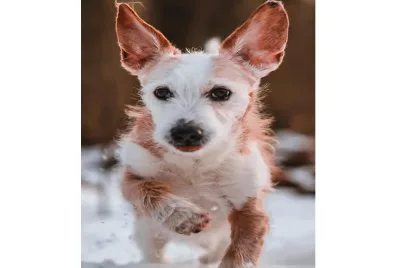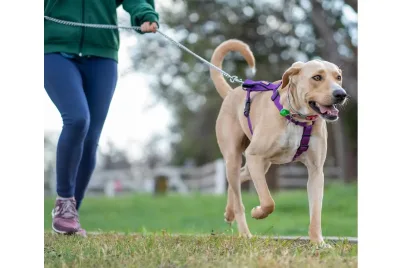Understanding Yellow Dog Poop: Causes, Concerns, and Care
As a devoted dog parent and enthusiast, I’ve learned to pay close attention to every aspect of my furry friend’s health. I’ve gained the experience that our furry friends have their unique ways of communicating with us. One of the ways they do this is through their poop. Yes, you read that right! While this may be one of the not-so-pleasant topics we dog parents often encounter, the color and consistency of your dog’s poop can provide valuable insights into their health. You might have noticed that sometimes your dog’s poop isn’t the usual brown color but is yellow dog poop. You’re not alone if you wonder, “Why is my dog’s poop yellow?” Should you be concerned when this happens? What could be causing yellow dog poop? Let’s delve into the reasons why your dog’s poop might be yellow and when it’s time to take action.
Understanding Normal Dog Poop
Before we explore why yellow dog poop occurs, it’s essential to understand what constitutes normal dog poop. Dog poop can come in various colors, ranging from brown to green to even black. These colors are generally attributed to your dog’s diet and the presence of bile in their digestive system. Typically, healthy dog poop is brown in color, has a firm but not rock-hard consistency, and is well-formed. The color may vary slightly based on diet, but brown is the norm.
Yellow dog poop can be a sign of various underlying issues, and it’s crucial to investigate further if you notice this change in your dog’s stool.
Let’s demystify yellow dog poop with nine possible reasons why your dog’s poop might be yellow.
9 possible reasons why your dog’s poop might be yellow
-
Dietary Factors
Sometimes, the simplest explanation is the correct one. One common reason for yellow dog poop is diet. Changes in your dog’s diet can lead to changes in poop color. If your dog has recently indulged in foods with a high concentration of yellow or orange pigments, such as carrots or sweet potatoes the color of their poop can be affected. This is perfectly normal and nothing to worry about. This is generally harmless and should resolve on its own once their diet normalizes.
-
Bacterial Infections
Bacterial infections in the digestive tract can disrupt the normal digestion process, leading to changes in stool color. Infections like giardiasis or bacterial overgrowth can cause yellowish diarrhea. These infections usually come with other symptoms like vomiting or lethargy.
-
Parasitic Infections
Certain intestinal parasites, such as giardia or coccidia, can lead to yellowish diarrhea in dogs. These parasites can be contracted from contaminated water or feces. These infections can upset your dog’s digestive system and affect the color and consistency of their poop. If you suspect a parasitic infection, consult your vet for appropriate treatment. Good hygiene practices can help prevent these infections.
Bile-Related Causes
Yellow dog poop can also be a result of excess bile in your dog’s digestive system. Bile is a greenish-yellow fluid produced by the liver and stored in the gallbladder. Sometimes, a rush of bile into the small intestine can give your dog’s poop a yellowish hue. This can happen due to various factors, including changes in your dog’s eating habits.
-
Liver Issues
The liver plays a vital role in bile production, which helps digest fats. If there’s a problem with the liver, such as a liver disease or dysfunction, it can result in insufficient bile production, leading to pale or yellow stool. Liver issues require immediate veterinary attention.
-
Gallbladder Problems
The gallbladder stores bile produced by the liver. Gallbladder problems, like inflammation or gallstones, can obstruct the flow of bile, causing yellow stool. These conditions can be painful and should be evaluated by a veterinarian.
-
Pancreatic Disorders
The pancreas produces enzymes that aid in digestion. If your dog has a pancreatic disorder, it can affect their ability to digest food properly. This may result in yellow, greasy stool and can indicate conditions like pancreatitis.
-
Medications
Certain medications can also cause changes in the color of your dog’s poop. Medications can affect your dog’s digestive system and lead to changes in stool color. If your dog is on medication, check the side effects listed by your veterinarian. Yellow poop may be a temporary and harmless side effect.
-
Stress and Anxiety
Believe it or not, stress and anxiety can impact your dog’s digestive health and gastrointestinal system. Just like in humans, stress can lead to gastrointestinal issues in dogs, including changes in poop color. If you’ve recently introduced a major change in your dog’s routine or environment, it might contribute to yellow poop. A recent move, introduction of a new pet, or other significant change can be stressful for dogs. Reducing stressors and providing comfort can help.
-
Other Medical Conditions
Various underlying medical conditions can result in yellow stool. These may include inflammatory bowel disease (IBD) or malabsorption disorders. A thorough veterinary examination is essential for accurate diagnosis and treatment.
When Should You Be Worried about Yellow Dog Poop?
Now that we’ve explored potential causes of yellow dog poop, it’s essential to know when you should be concerned. If your dog passes yellow stool occasionally and returns to normal within a day or two, it may not be a cause for alarm. However, you should be worried and seek veterinary care if:
- Your dog consistently passes yellow stool for more than two days. Chronic changes in poop color can be a sign of an underlying health problem.
- Keep an eye out for other symptoms that accompany yellow dog poop, like vomiting, diarrhea, lethargy, or loss of appetite. These can indicate a more serious issue.
- If your dog’s behavior changes significantly, such as becoming unusually lethargic or showing signs of pain or discomfort, seek immediate veterinary attention.
Home Remedies for Mild Cases of Yellow Dog Poop
For mild cases of yellow dog poop, you can try a few home remedies.
Proper hydration is crucial when dealing with digestive issues. Make sure your dog has access to clean water at all times to ensure your dog stays hydrated
Provide a balanced diet with a mix of proteins, vegetables, and grains. Avoid feeding excessive amounts of foods known to cause yellow poop. Consider gradually transitioning your dog to a bland diet, such as cooked chicken and cooked rice, for a few days. This can help soothe their digestive system. Ensure your dog stays hydrated during this time.
Here’s a simple and bland chicken and rice recipe for dogs that can be gentle on their stomach, especially if they’re experiencing digestive issues:
Ingredients:
1 cup of cooked white rice (cooked without salt or seasoning)
1 cup of boneless, skinless chicken breast (boiled or baked, with no seasoning or oil)
1/4 cup of water or plain, unsalted chicken broth (optional, for flavor and moisture)
Instructions:
Cook the rice: In a saucepan, cook the white rice according to the package instructions. Make sure not to add any salt or seasoning during the cooking process. Allow the rice to cool completely before proceeding.
Cook the chicken: While the rice is cooking, prepare the chicken. You can boil it in water or bake it in the oven. Do not use any oil, spices, or seasoning. Ensure that the chicken is thoroughly cooked and there are no pink or raw parts. Once cooked, allow it to cool.
Shred the chicken: Once the chicken is cooled, shred it into small, bite-sized pieces. You can use a fork or your hands for this.
Mix the chicken and rice: In a mixing bowl, combine the cooked rice and shredded chicken. If your dog prefers a bit more flavor and moisture, you can add a quarter cup of plain, unsalted chicken broth and mix well.
Serve to your dog: Divide the bland chicken and rice mixture into appropriate portions for your dog’s size and appetite. Serve it to your dog at room temperature. Ensure that it’s not too hot.
This bland chicken and rice recipe is easy to digest and can be soothing for dogs with upset stomachs or digestive sensitivities. It’s important to consult with your veterinarian if your dog has ongoing digestive issues or if you plan to feed them a bland diet for an extended period. Additionally, always make sure your dog has access to fresh water.
Consulting a Veterinarian
When in doubt, it’s always a good idea to consult your veterinarian. They can perform diagnostic tests, including blood work and fecal analysis, to determine the underlying cause of yellow poop. Remember, early detection and treatment are key to your dog’s health.
Preventing Yellow Dog Poop
Prevention is often the best medicine. Here are some tips to help prevent yellow dog poop:
- Maintain a consistent and balanced diet for your dog.
- Gradually introduce new foods to avoid digestive upsets.
- Ensure your dog has access to clean, fresh water at all times.
- Minimize stressors and provide a stable environment for your dog.
- Practice good hygiene.
- Keep up with regular vet check-ups to catch any issues early.
Conclusion
As a responsible dog parent, it’s essential to monitor your dog’s health closely. While yellow dog poop can be alarming, it’s not always a cause for panic. It’s essential to understand the various factors that can contribute to this color change. While some causes are harmless and temporary, others may require veterinary attention. Monitoring your dog’s poop and seeking professional advice when needed are crucial steps in maintaining their health and well-being.
So, the next time you ask, “Why is my dog’s poop yellow?” remember that it’s all part of the journey of caring for your furry companion.
FAQs
Q1.: Can dietary changes cause yellow dog poop?
A: Yes, dietary changes, especially those involving foods with yellow pigments, can temporarily cause yellow dog poop. This is generally not a cause for concern and should resolve on its own.
Q2.: How long can occasional yellow dog poop last before worrying?
A: If your dog passes yellow stool occasionally and returns to normal within a day or two, it may not be a cause for alarm. However, consistent yellow stool for more than two days should be evaluated by a veterinarian.
Q3.: Can stress and anxiety affect a dog’s poop color?
A: Yes, stress and anxiety can impact a dog’s gastrointestinal system, potentially leading to changes in stool color. Creating a calm and comfortable environment for your dog can help.
Q4.: When should I consult a veterinarian for yellow dog poop?
A.: You should consult a veterinarian if your dog consistently passes yellow stool for more than two days, especially if it’s accompanied by other concerning symptoms like vomiting or lethargy.
Q5.: Is it normal for a dog’s poop to vary in color?
A: Yes, slight variations in poop color can be normal, especially based on diet. Persistent or drastic changes in color should be investigated.




